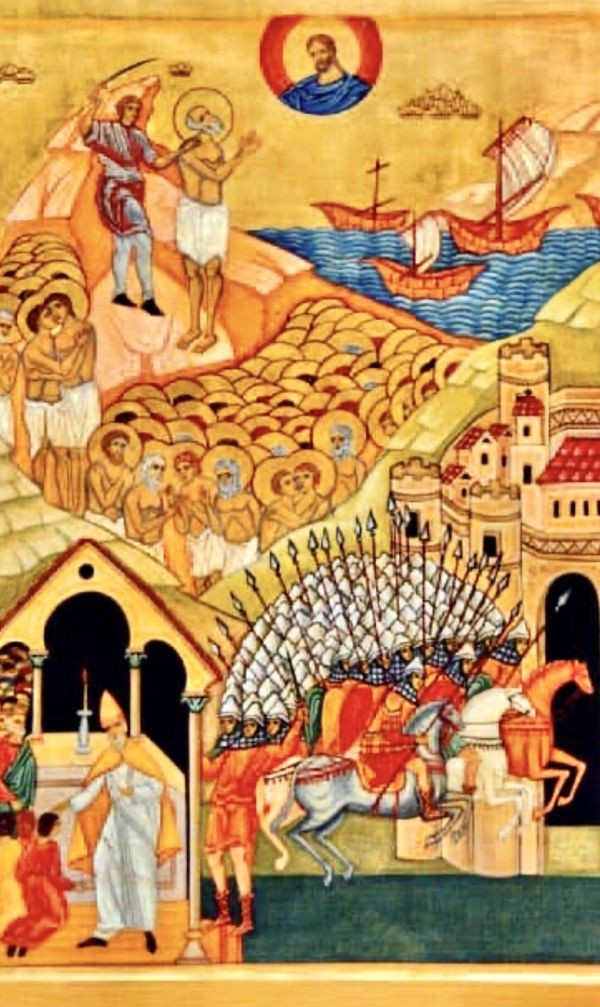Placing in the events of persecution
(Lk 21:12-19)
The course of history is a time when God composes the confluence of our freedom and circumstances.
In such folds there is often a vector of life, an essential aspect, a definitive destiny, that escapes us.
But to the non-mediocre eye of the person of Faith, abuses and even martyrdom are also a gift.
To learn the important lessons of life, every day the believer ventures into what he is afraid to do, overcoming fears.
The spousal and gratuitous love received places us in a condition of reciprocity, of active desire to unite life to Christ - albeit in the meagre nature of our responses.
Continuing instead to complain about failures, dangers, calamities, everyone will see in us women like the others and ordinary men - and everything will end at this level.
We won’t be on the other side. At most we will try to escape the harshness, or we will end up looking for circumstance’s allies (vv.14-15).
Mt intends to help his communities to clash with worldly logic and to place themselves fervently in the events of persecution.
Social harassments are not fatalities, but opportunities for mission; places of high eucharistic witness (v.13).
The persecuted do not need external crutches, nor do they have to live in the anguish of collapse.
They have the task of being signs of the God’s Kingdom, which gradually leads the distant and the usurpers themselves to a different awareness.
No one is the arbiter of reality and all are twigs subject to reverses, but in the humanizing condition of the apostles overflows an emotional independence.
This happens through the intimate, living sense of a Presence, and the reading of external events as an exceptional action of the Father who ‘reveals himself’.
In this mouldable energy magma, unique paths emerge, unprecedented opportunities for growth... even in adversity.
Attitude without alibi or granite certainties: with the sole conviction that everything will be put back on the line.
Sacred and profane times come to coincide in a fervent Covenant, which nests and bears fruit even in moments of travail and nonsense.
Here the only necessary resource is the spiritual strength to go all the way... yes, in paradoxes of other side.
It’s in the Lord and in the insidious or day-to-day reality the "place" for each of us. Not without lacerations.
Yet we draw spiritual energy from the knowledge of Christ, from the sense of deep bond with Him and even minute and varied reality, or fearsome - always personal (v.18).
Our story will not be like an easy and happy ending novel.
But we’ll have the opportunity to witness in the present the most genuine ancient roots: at every moment God calls, manifests himself - and what seems to be failure becomes Food and source of Life.
To internalize and live the message:
What kind of reading do you do, and how do you place yourself in events of persecution?
Are you aware that setbacks do not ‘come’ for despair, but to free you from closure in stagnant cultural patterns (and not yours)?
[Wednesday 34th wk. in O.T. November 27, 2024]












